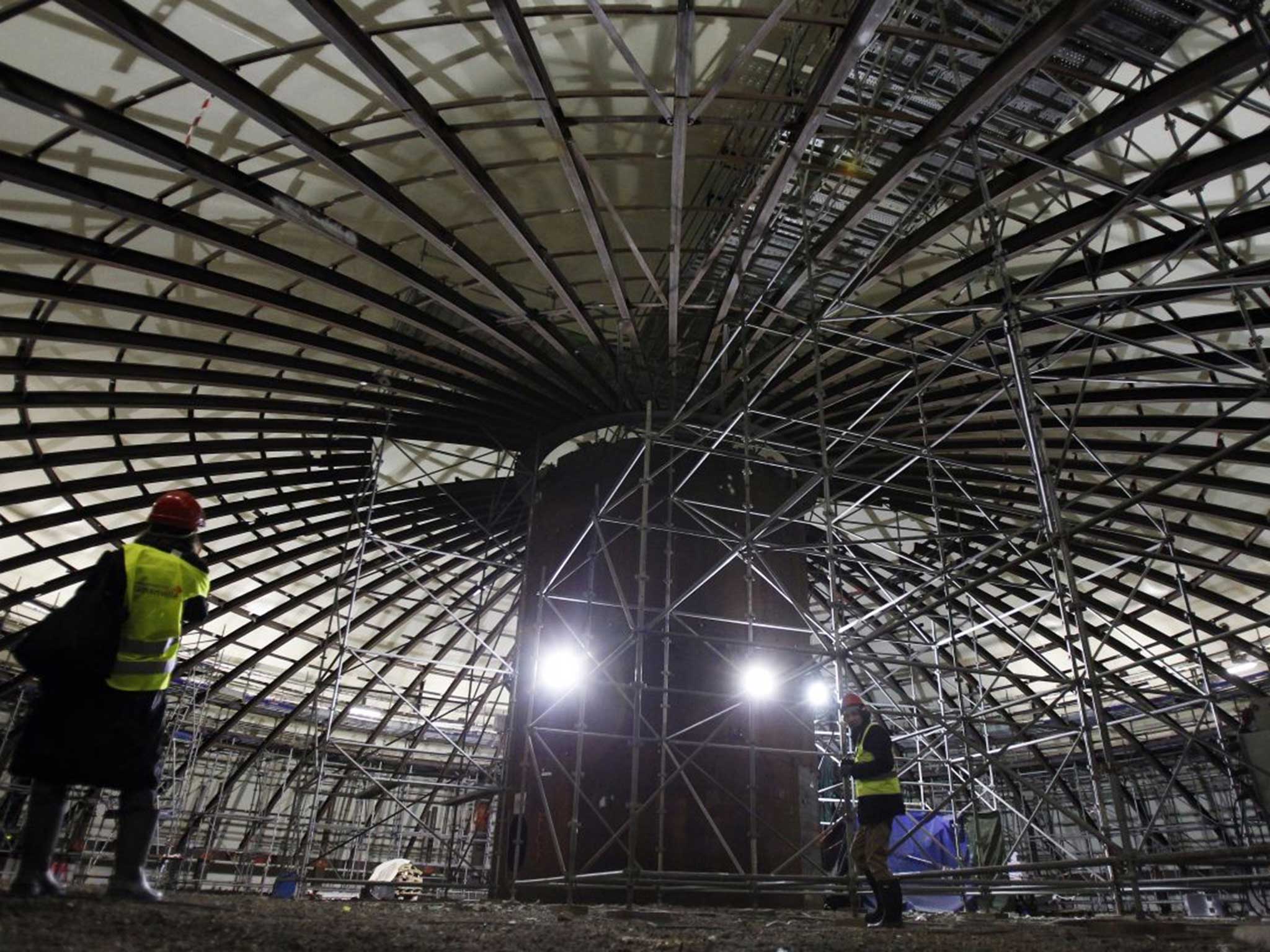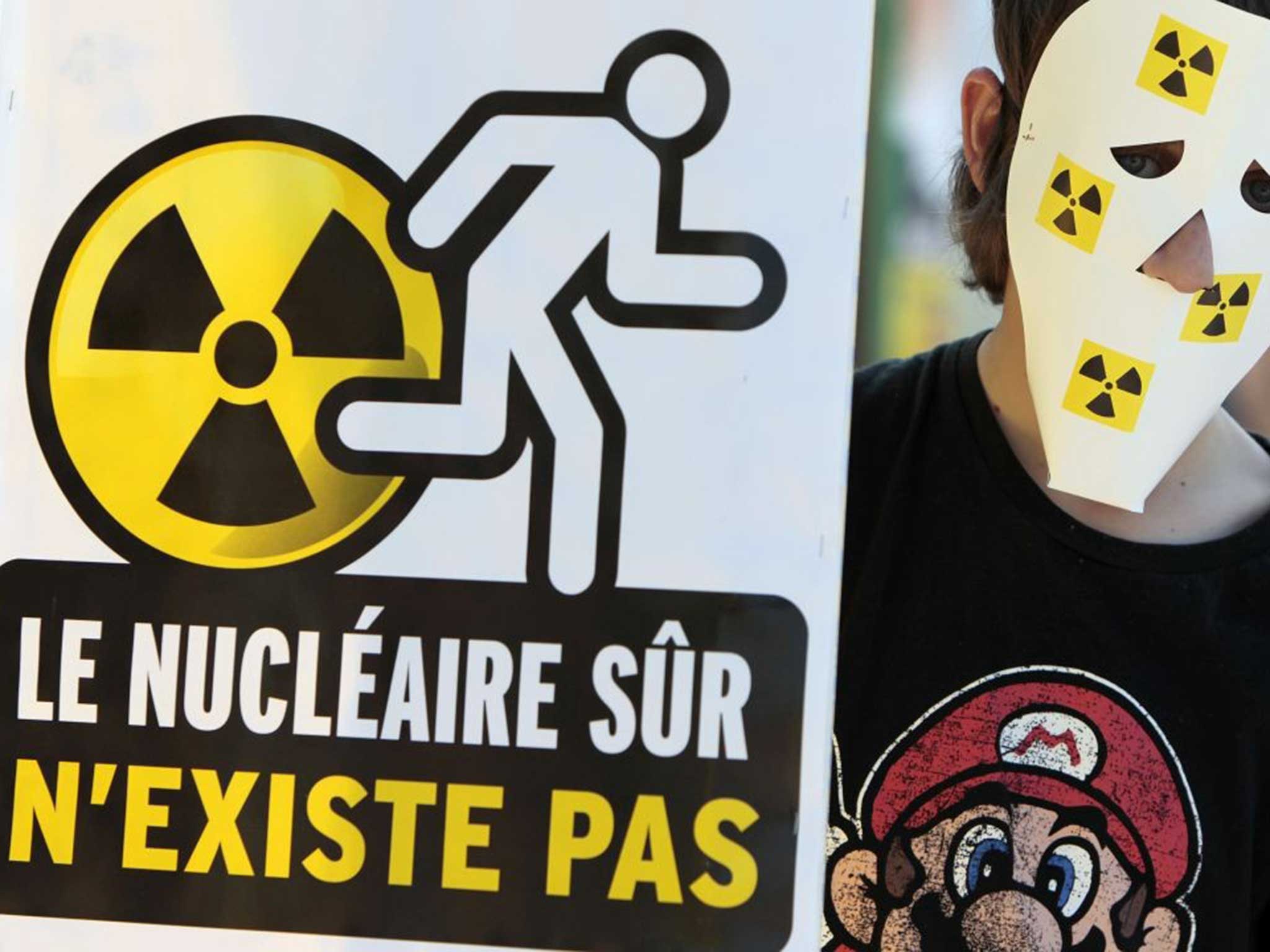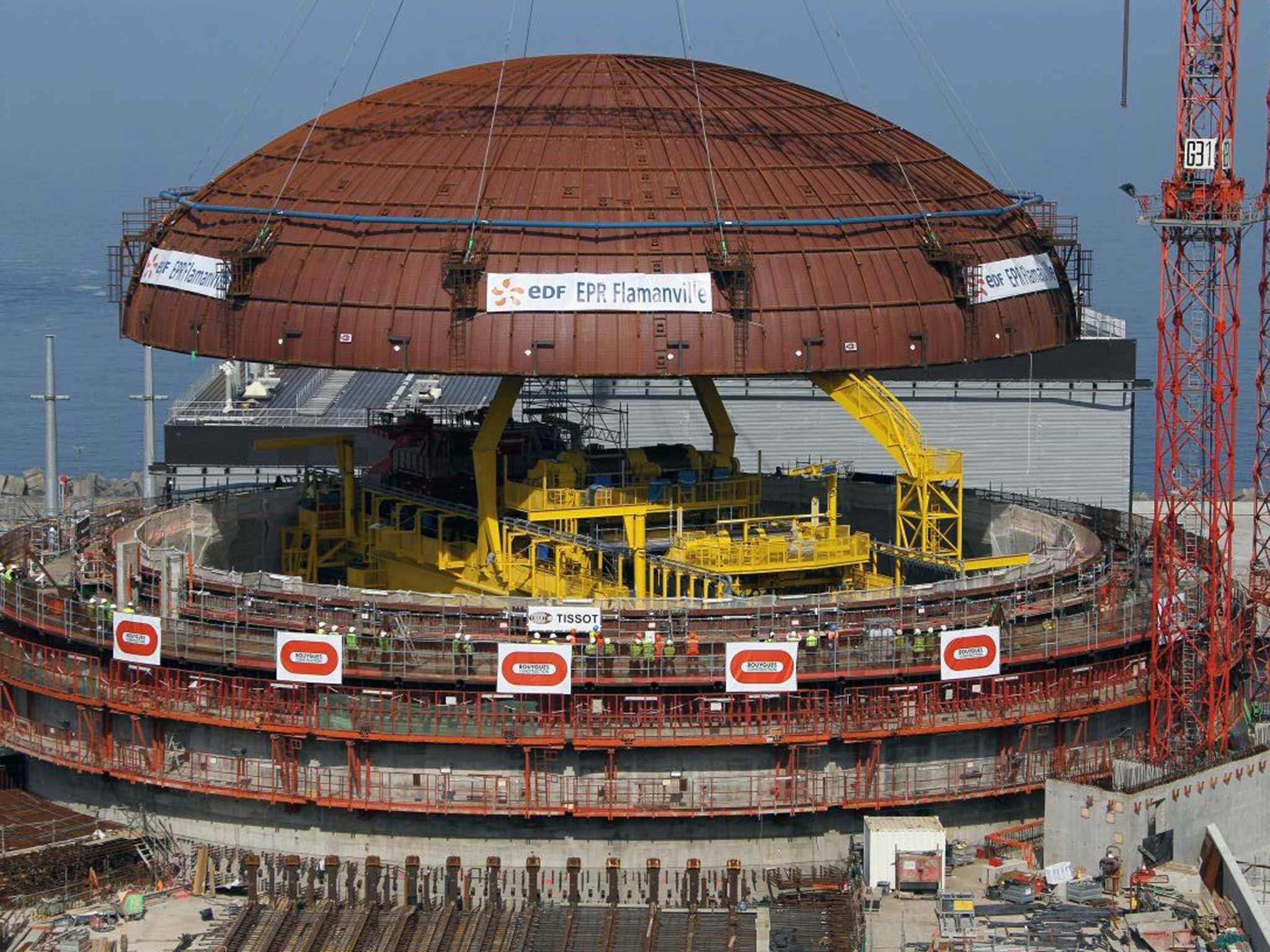UK nuclear strategy faces meltdown as faults are found in identical French project
The faults could also scare off the Chinese state investors who are supposed to cover part of the cost of the £14bn Hinkley project

Your support helps us to tell the story
From reproductive rights to climate change to Big Tech, The Independent is on the ground when the story is developing. Whether it's investigating the financials of Elon Musk's pro-Trump PAC or producing our latest documentary, 'The A Word', which shines a light on the American women fighting for reproductive rights, we know how important it is to parse out the facts from the messaging.
At such a critical moment in US history, we need reporters on the ground. Your donation allows us to keep sending journalists to speak to both sides of the story.
The Independent is trusted by Americans across the entire political spectrum. And unlike many other quality news outlets, we choose not to lock Americans out of our reporting and analysis with paywalls. We believe quality journalism should be available to everyone, paid for by those who can afford it.
Your support makes all the difference.A “very serious” fault has been discovered in a French nuclear power station which is at the heart of David Cameron’s strategy to “keep the lights on” in Britain in the next decade.
The future of two nuclear reactors planned for Hinkley Point in Somerset has been thrown into doubt by the discovery of a potentially catastrophic mistake in the construction of an identical EPR power plant in Normandy.
“It is a serious fault, even a very serious fault, because it involves a crucial part of the nuclear reactor,” said Pierre-Franck Chevet, head of France’s nuclear safety inspectorate.
A second investigation has been ordered into the quality of the steel used to make a 50ft-high safety casing, or “pressure vessel”, which encloses the groundbreaking new reactor at Flamanville, near Cherbourg. If the steel proves to be defective, the completion of the prototype EPR plant – already behind schedule and nearly three times over budget – could be delayed for several years.
Mr Chevet also revealed that the same manufacturing techniques had been used in the steel for the identical safety casings destined for Hinkley Point, which “have already been manufactured”.

The fault could undermine the already fragile finances of the French state-owned nuclear construction company Areva, which is supposed to build two EPR reactors at Hinkley by 2023 and a third at Sizewell in Suffolk. It could also scare off the Chinese state investors who are supposed to cover part of the cost of the £14bn Hinkley project, intended to supply six per cent of Britain’s energy needs for six decades.
A final “investment” decision for Hinkley, several times delayed, is now expected in June. The French Prime Minister Manuel Valls called a crisis meeting on 17 April to discuss the threat posed by the fault to France’s nuclear construction industry – the largest in the world.
Mark Hackett, a councillor in Manchester who chairs Nuclear Free Local Authorities, said: “This is a devastating blow to proponents of new-build nuclear power stations in the UK. It is likely to scare off the Chinese backers. If I was a betting man, I would now bet that Hinkley Point will never be built.”
Yannick Rousselet, of Greenpeace France, said the latest problems to beset the prototype power station in Normandy are “clearly the coup de grâce for the EPR idea”. He asked: “What foreign client would want to buy this reactor when France itself is not capable of completing its construction?”
Apart from Britain, the United States and China are in the process of buying versions of the new generation of European Pressurised Reactor (EPR) – supposedly safer and more efficient – from France. Both Areva and Eléctricité de France (EDF), the French energy giant which will own and operate Hinkley Point, have refused to comment in detail.

EDF said that “further investigations of the steel safety casing” would be conducted as soon as possible. In the meantime, other work on the €8.5bn project at Flamanville (originally costed at €3bn) would continue, EDF said.
Mr Chevet, head of the nuclear safety watchdog, ASN, first revealed the fault a week ago. In more detailed public comments yesterday, he revealed that the steel ordered for the safety casings or “pressure vessels” for six EPR reactors – including those earmarked for Hinkley Point – appeared to have been made inaccurately.
Tests in December on the pressure vessel already installed at Flamanville suggested that the steel at the top and bottom of the casing contained an excessive amount of carbon. This meant that the enormous cylinder which surrounds the reactor and prevents radiation leaks may be “too weak” and “could rupture”.
All the casings were forged by Areva at Le Creusot in central France as long ago as 2007-08. It would be possible to replace them, Mr Chevet said, but it would be “very costly in terms of time and money”.
Sources in the French nuclear industry told the newspaper Le Parisien yesterday that dismantling the faulty pressure vessel and ordering and manufacturing a new one could take several years. “If the weakness of the steel is proved, I don’t hold out much hope for the survival of the EPR project,” a former senior nuclear safety official told Le Parisien.
Mr Chevet said a second opinion had been sought and that experts in other countries “may be consulted”. There was no doubt, he added, that “mistakes had been made”. “It is more than 15 years since the last nuclear power stations were constructed in France,” he said. “The expertise in some trades has not been sufficiently passed on from one generation to the next.”
The original plan to develop an ageing nuclear site at Hinkley Point for a new generation of British reactors goes back to the last Labour government in January 2008. It was taken over by the present government as the keystone of its strategy to meet international commitments to reduce carbon emissions.
EDF, which owns the site, is due, in principle, to start building work in 2017. Together with a third EPR at Sizewell, Hinkley is expected to generate 16 per cent of Britain’s electricity – and six per cent of its energy needs – by the mid-2020s.
The crisis at Flamanville is also a potential calamity for Paris. France relies on nuclear power for 80 per cent of its electricity needs. Like Britain, it has an ageing array of nuclear power stations. EPR was supposed to offer a clean and safe new source of nuclear power. The technology was expected to make Areva and EDF the undisputed leaders of the world nuclear industry.
Join our commenting forum
Join thought-provoking conversations, follow other Independent readers and see their replies
Comments